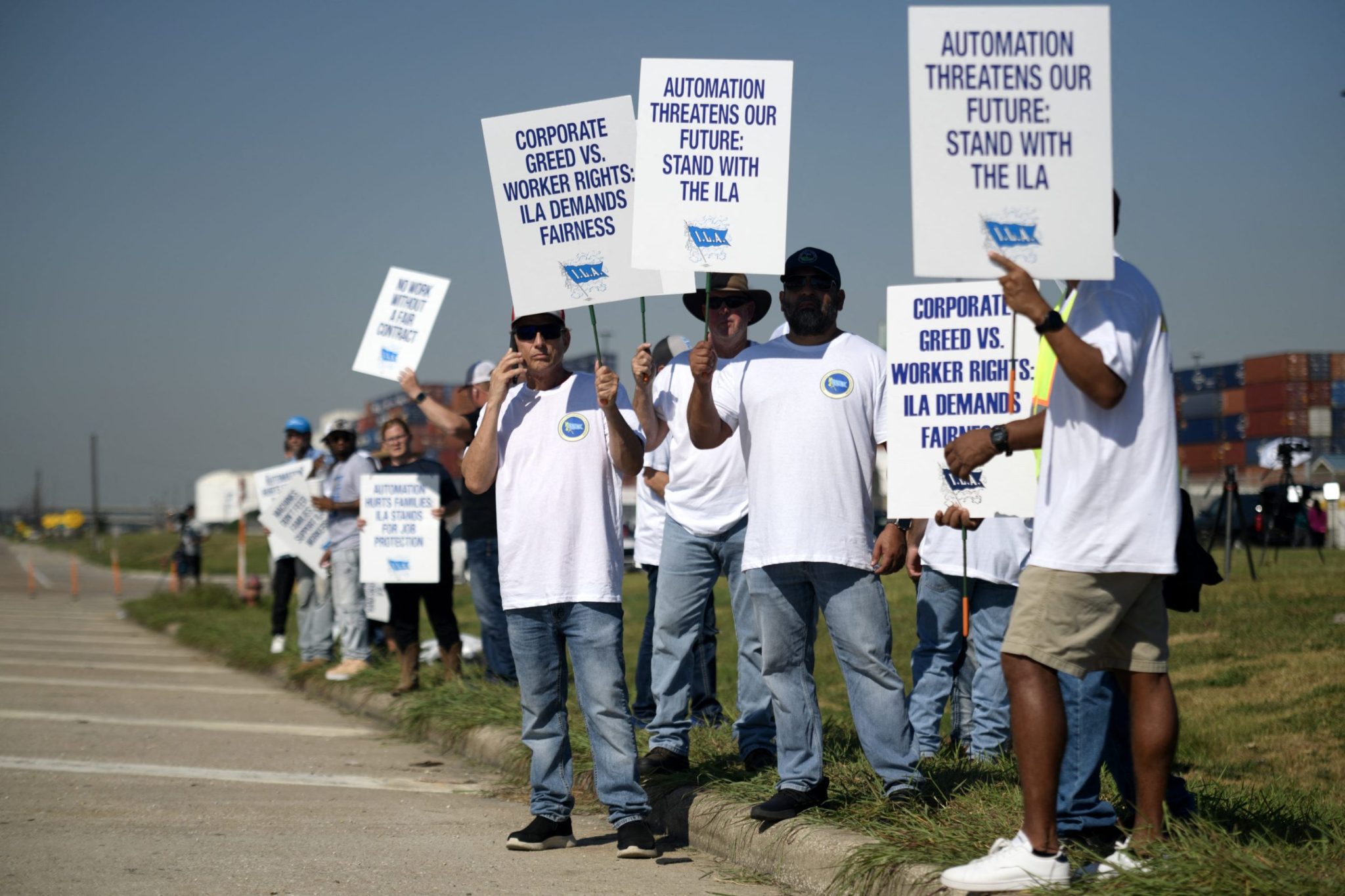Dockworkers across the East Coast and Gulf ports went on strike this week, picketing against the threat that automated technologies such as driverless trucks pose to their livelihood.
After a three-day walkout, the International Longshoremen’s Association and U.S. Maritime Alliance reached a tentative agreement on wages Thursday and extended their existing labor contract until Jan. 15. But the use of automation remains a sticking point as the parties return to the bargaining table to hash out the full contract.
The union’s pushback against automation adds to recent buzz around whether artificial intelligence will displace human labor.
Generative AI has been a wake-up call for office workers, who are, for the first time, facing the possibility of technology writing software code and emails in their place. But the fight against automation predates AI and has been a longstanding battle for industrial workers, who have been sounding the alarm about the risk machines pose to job security for generations.
While the technology typically wins out, it’s not without a fight.
In terms of the dockworker contract, the question is less about whether ports will become automated—they already are to some extent with mixed results—and more about what the cost will be to workers. The history of clashes over corporate cost-cutting that replaces human labor can be a guide.
In the early 1900s, thousands of elevator operators went on strike to protest the impact of easy-to-use elevator buttons that would allow passengers to operate elevators themselves. Meanwhile, some members of the public feared riding by themselves in the newfangled contraptions and demanded operators. The new tech faced roughly 50 years of resistance, including a landmark 1945 strike that shut down New York City, before elevators as we know them became commonplace.
Automated elevators have in recent years drawn comparison to the advent of driverless cars. Taxi, Uber, and truck drivers now fear for their jobs and some members of the public worry whether autonomous vehicles are safe without humans at the controls.
Worried about the pace of automation, labor unions have fought and won more transparency from management about new tools in the workplace. As new technologies are introduced, unions have historically ensured new jobs for workers who lose them, severance, or retraining, said Lisa Kresge, a researcher at the University of California Berkeley’s Labor…
Click Here to Read the Full Original Article at Fortune | FORTUNE…


